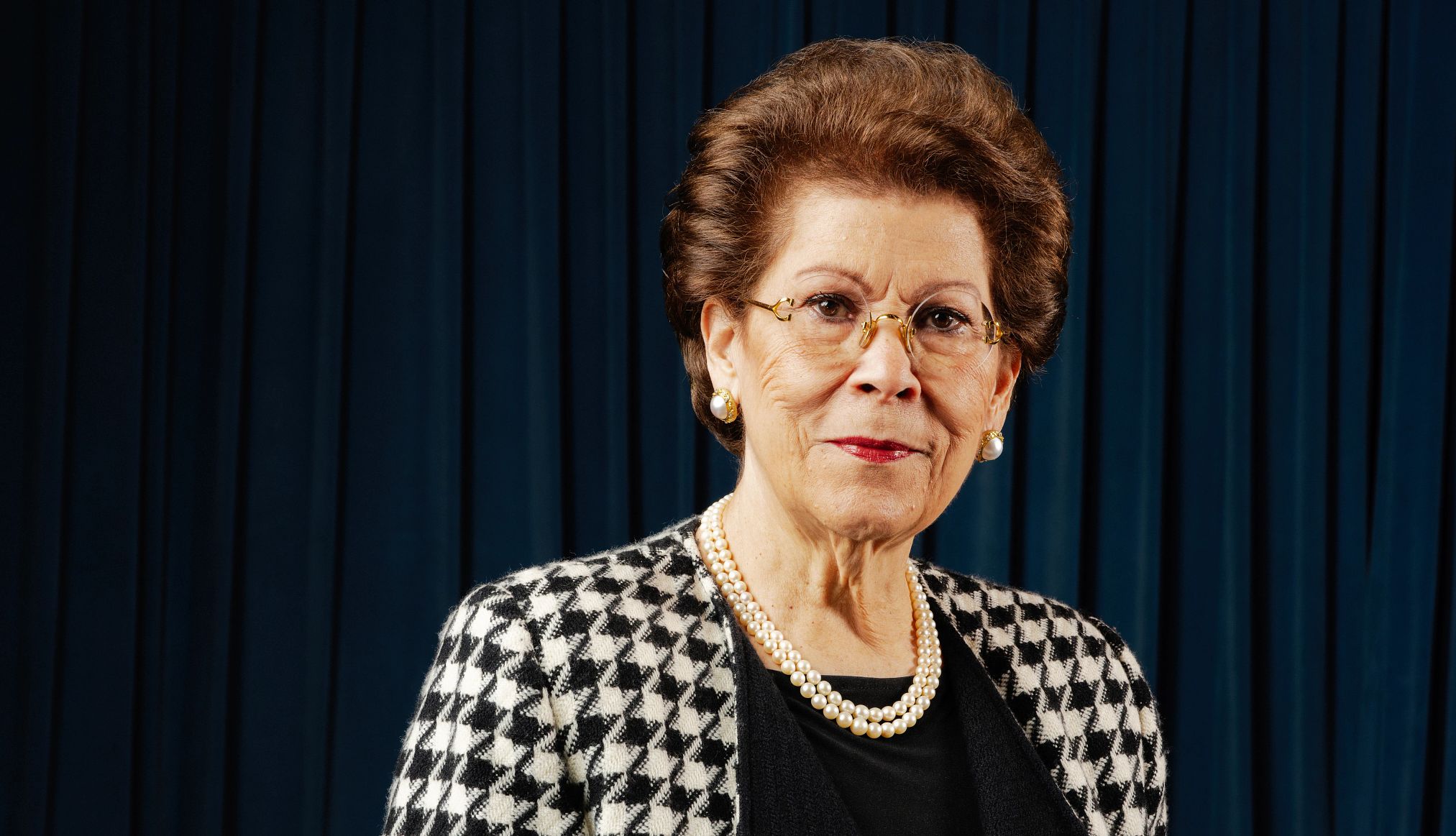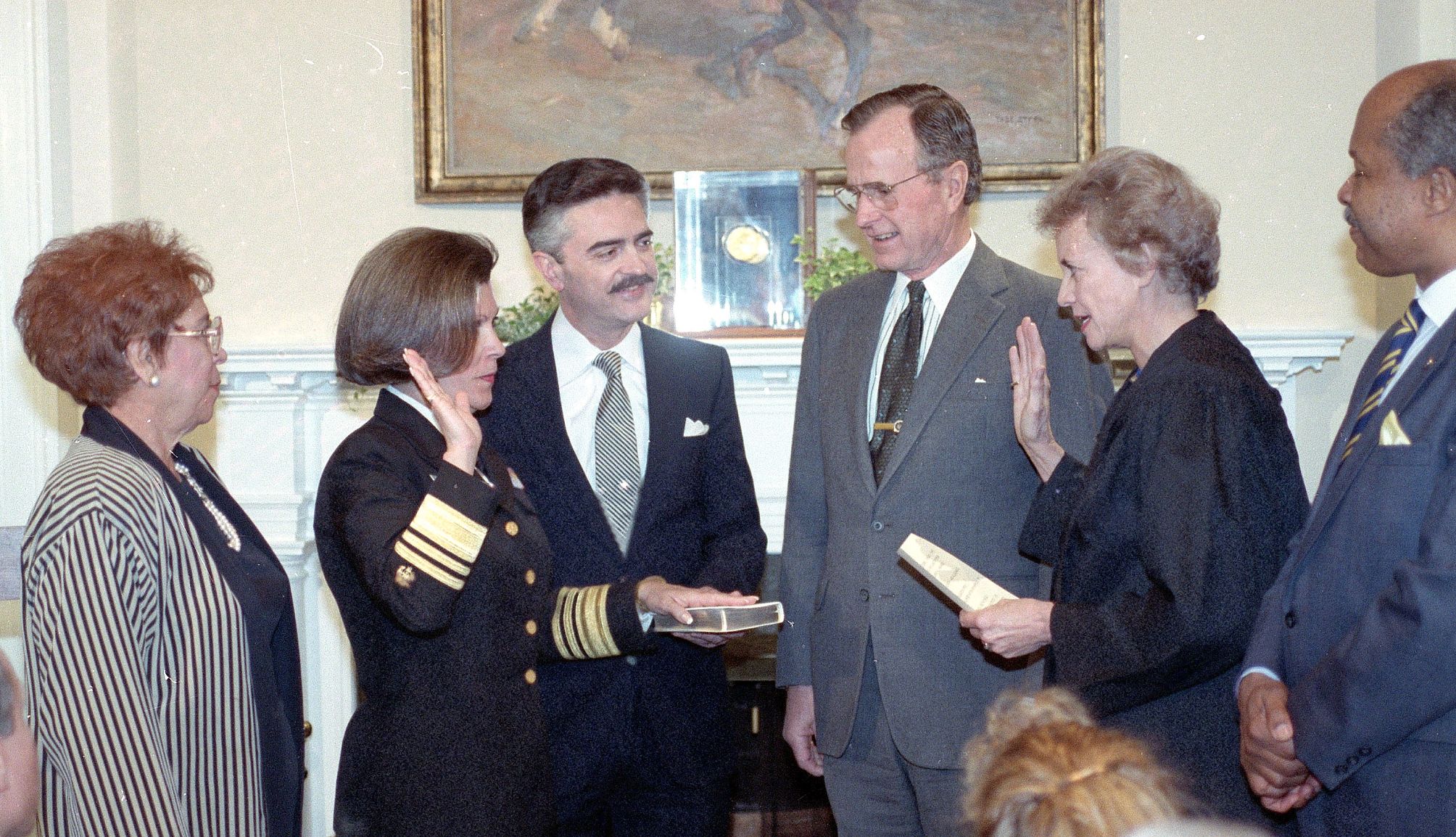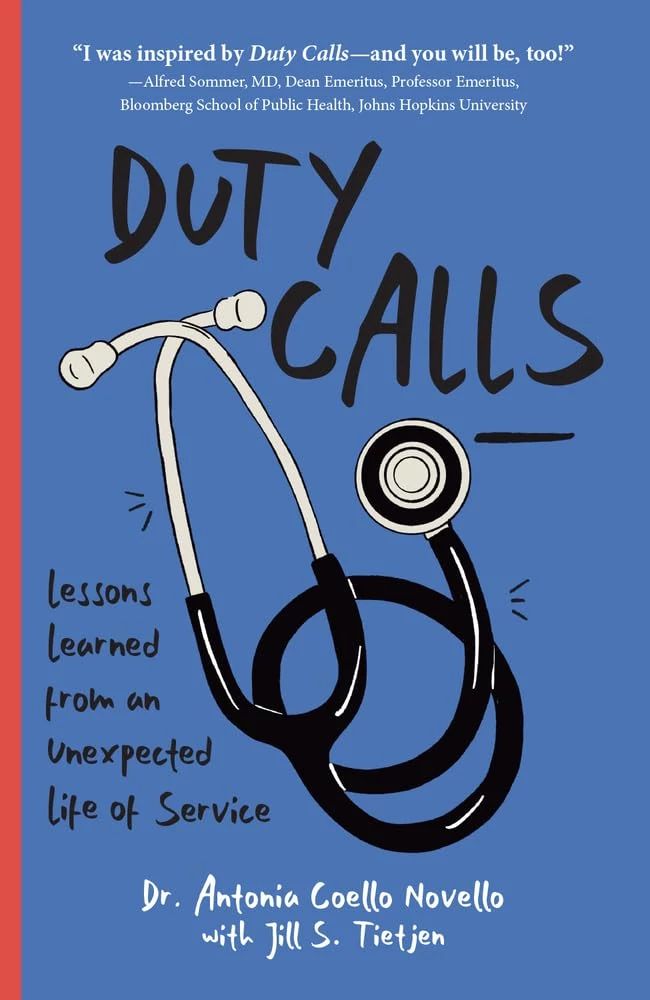AARP Hearing Center


Antonia Novello, M.D., wants you to know her name — and her full story.
A quick search will reveal her history-making role as the first woman and the first Latina to become surgeon general of the United States. In her three years as the nation’s top health official under President George H.W. Bush, she championed the health of women, children, Latinos and other underrepresented groups during major moments in public health. Novello promoted early childhood immunizations, combated underage smoking by tackling tobacco advertisements aimed at children (particularly those featuring Joe Camel), and launched initiatives during the AIDS crisis to focus on women and the prevention of neonatal transmission of HIV. She continued her role as a public servant in 1999 under New York Gov. George Pataki as commissioner for the state’s Department of Health and was responsible for the public health response in the aftermath of 9/11.


But reading about her accomplishments doesn’t tell us her full story. That’s Novello’s aim in her recently published memoir, Duty Calls: Lessons Learned from an Unexpected Life of Service, in which Novello, 79, recounts her challenging path to surgeon general and her crumbling marriage. Novello, with the help of coauthor Jill S. Tietjen, details the prejudices she faced as a Puerto Rican woman studying and working in the United States, as well as her story of falling in love with, divorcing and continuing to be fiercely devoted as a caregiver to her ex-husband and his family.


“I’m not getting any younger, and I want this to be written while I still remember,” Novello writes in the book’s preface. She didn’t want to be left out as “one of the few US Surgeons General without a book.”
In an interview with AARP, Novello shares what grownups can gain from her memoir.
This interview has been edited for clarity and length.
What accomplishment are you most proud of, whether in your personal life or your career?
Everybody asks me, what [role] did you like more: surgeon general or commissioner of health of the state of New York? And I think they are two different jobs. It was quite a surprise for me to be health commissioner of the state of New York with such a budget and being able to do what I promised I would. From the perspective of the surgeon general, I could convince the world of doing everything, but I had no money to [do] it, just my voice and the power of the office. Both of them had lots of occasions where it was marvelous to be able to participate, but [being] commissioner of health for the state of New York, specifically on Sept. 11, made it different. All I know about public health, I practiced [during] those particular three months. And I feel very good about accomplishing some of the goals: saving lives, identifying the dead and protecting the children.
You have experienced a lot of prejudice in your life, particularly when you were going to medical school. With much of the physician workforce still white and male, what is your hope for the future of health care as it relates to having more diversity in the field?
Remember, there’s only 6 percent of doctors that are Latino and 5 percent of doctors who are African American and only 0.3 percent that are Native American. So if one sees that Native Americans are 2.9 percent of the United States population and African Americans are 13.7 and we Latinos are 19 percent, we don’t have enough to take care of ours. The most important thing that I think we have learned from all this trajectory is that language is not enough. You absolutely have to know the culture, because otherwise you will not reach the people that you were meant to save in that time.






































































More From AARP
Fashion Influencer Lyn Slater, 70, Knows ‘How to Be Old’
Her new book encourages later-in-life reinvention and embracing aging with style and joy
Streisand and Winkler Among the Celebs With Big Memoirs Coming Soon
Top Hollywood stars and music legends describe love, pain and dreams dashed and fulfilled on their roads to fame
What to Read This Month and Other Book News
Discover the month’s top releases, including a new history from Erik Larson, and vote in Jimmy Fallon’s book club contest
Recommended for You